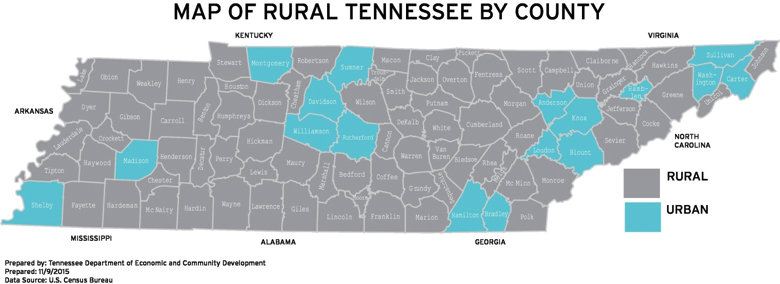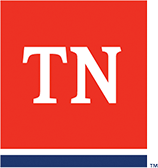In Creative Placemaking, partners from public, private, nonprofit and community sectors strategically shape the physical and social character of their neighborhood, town, city, or region around arts and cultural activities or assets.
The Creative Placemaking grant competition is designed to help communities enhance the distinctive local character of Tennessee places for positive economic and community outcomes.
Creative Placemaking grant awards may range from $3,000 to $30,000. Funding will depend upon an organization’s rating in the review process and upon the total amount of funds available to the Commission for grant allocation. This grant program is competitive, and most grant requests are not fully funded.
The Creative Placemaking (CP) grant is designed to help communities enhance the distinctive local character of Tennessee places for positive economic and community outcomes. Successful CP applications will demonstrate how proposed projects will materially improve the physical and social character of their neighborhoods, districts, municipalities, or regions through arts and cultural activities or assets. In addition to merit ratings, the Commission seeks a diversity of project designs, locations and community settings across Tennessee for CP projects.
Applicants may request up to $30,000. At least two awards will be made to eligible rural applicants.
Applications must clearly show a 1:4 cash or in-kind match commitment by the applicant. That is, for every $4 of Commission funding requested, the grantee must provide a minimum of $1.
The Commission believes that creativity is a catalyst for innovation, entrepreneurship and invention. Many organizations, businesses and local governments collaborate to reinvest in and revitalize their communities, and the arts often represent a way to cultivate and capitalize upon creativity with lasting economic benefits.
In creative placemaking, partners from public, private, nonprofit and community sectors strategically shape the physical and social character of a neighborhood, town, city or region around arts and cultural activities or assets. Creative placemaking animates public and private spaces, rejuvenates structures and streetscapes, improves local business visibility and public safety, and brings diverse people together to build shared understanding of culture and community.
If funded, all grantees must promptly notify the Commission in writing of any significant changes in the organization’s structure, leadership or financial circumstances that could affect services provided under the grant contract resulting from this application.
Engaging public and private partners is often critical to the success of local development activities through the arts. To increase the likelihood of success and sustainability, the Commission encourages communities to involve public, private (including nonprofit organizations) and institutional partners in the development of a CP grant proposal.
The lead applicant is eligible to apply if the organization meets one of the following qualifications:
- The organization is an entity of local government or regional quasi-governmental entity (development district, human resource agency, etc.)
- The applicant is a nonprofit organization legally chartered in Tennessee and in possession of a determination letter from the Internal Revenue Service declaring the organization exempt from federal income tax under Section 501(c)3 of the Internal Revenue Code
Unique Entity ID (UEI): All applicants are required to have a Unique Entity ID. Information and application instructions can be found here.
Debarment and Suspension. Grantees are required to sign contracts certifying to the best of its knowledge and belief, that it, its current and future principals, its current and future subcontractors and their principals are not presently debarred, suspended, proposed for debarment, declared ineligible, or voluntarily excluded from covered transactions by any federal or state department or agency.
Schools, colleges and universities are ineligible to serve as lead applicants, although they would be welcome as partners. All Creative Placemaking grants will be awarded and disbursed to lead applicants only.
Examples of eligible projects or activities may include but are not limited to:
- Arts used as a catalyst to revitalize downtowns or neighborhoods
- Development of an arts or cultural business incubator or apprenticeship program
- Transformation of a perceived community liability into a community asset through the arts
- Development of an activity or project that encourages greater engagement with the arts in state parks, farmer’s markets, or other natural, unique ecological or recreational assets
- Operating support for arts organizations or ongoing arts programming.
- Marketing and promotional materials (project related wayfinding signage is an allowable expense)
- Standard Commission funding restrictions. However, for the CP grant category only, costs for equipment, if integral to the project, are allowable
Arts organizations that receive revenue directly from a “New Specialty Earmarked Plate” under T.C.A 55-4-301 (a)(1) are ineligible for Commission grant funding.
Unique Entity ID (UEI): All applicants are required to have a Unique Entity ID. UEI information and application instructions can be found here.
For further eligibility information, please refer to the Commission’s Legal Requirements.
PLEASE NOTE: An organization should not apply in this grant category if it is aware at the time of application they cannot meet all of the above stated requirements.
The Tennessee Arts Commission reserves the right to deny any application, if the proposed activity is outside of the scope or spirit of the agency’s mission, purpose, or this grant program.
Evaluators reviewing grant applications under this program use the following evaluation criteria:
- Extent to which a project or activity builds on the distinctiveness of place using arts or cultural assets and demonstrates a potential to stimulate economic or community growth through the arts.
- Evidence that the project or activity effectively addresses a community purpose, issue or need
- Capability of applicant to perform the activity, including evidence of financial and/or in-kind commitment for local match and overall project support beyond the minimum required match as described in the budget narrative.
- Level of community support demonstrated by letters of support and indications of active participation from community stakeholders or partners. Strong applications will include letters from two or more partners or types of partners including: private, government, arts and cultural nonprofits or other community partners.
- Articulation of clear, measurable outcomes, including sustainability.
To align with the Governor’s Rural Task Force, the panel may award up to 10 additional points in the second criteria to applications from or serving one or more communities in rural counties as defined by the Rural Task Force. See map below. (The following rural designation should not be confused with the designation used by the Commission’s Rural Arts Project Support program.)

All Commission sponsored programs, services and facilities are fully accessible to all Tennessee artists and citizens. Organizations are urged to consider contracting with diverse artists, artists living with disabilities, and/or artists representing Tennessee’s diverse artistic and cultural heritage. No person on the basis of race, color, national origin, disability, age, religion or sex shall be excluded from participation in, or be denied benefits of, or otherwise be subject to discrimination of services, programs and employment provided by the Commission and its contracting agencies. If an individual believes they have been subjected to discrimination, they should contact the Commission’s Director of Arts Access, Kim Johnson (615) 532-9797.
- If you are a new applicant to the Tennessee Arts Commission, register to use the Online Grants System. You are strongly advised to register well in advance to the application deadline. Anyone registering close to the deadline date can expect delays in the processing of their grant application.
- Log in to the Online Grants System to complete your “Organization” profile and begin an application for a CP grant.
- Use the “Organizations” tab on the left-hand menu to ensure that the profile is complete and accurate. This information is as important as the application itself. Incomplete or erroneous data will impact your chances for funding. To edit the profile, click the “Edit” button at the top of the Organization screen.
- Use the “People” tab on the left-hand menu to ensure that your “People” profile is complete and accurate. This information will also be used in the review of the application. To edit the profile, click the “Edit” button at the top of the screen.
- When both your “Organization” and “People” profiles are complete and accurate, select the “Apply for Grants” tab, scroll down and select “Apply for Annual Grant”, when the application opens choose Creative Placemaking for the grant category.
- Complete all of the application fields.
- Create and upload required attachments.
- Submit by Tuesday, January 16, 2024, by 11:59 p.m. (CST).
NOTE: The forms in this portal do not auto-save. Always click the “Save” button before navigating away from the form you are editing to save your work.
Beware—clicking the back navigation button on your web browser will exit you from the system and you will lose your work.
Association or Connection to Multiple Organizations: If you are associated with more than one organization, the organization that you were originally associated with will prepopulate in the organization name field on any newly opened application. To change to another associated organization, simply delete the prepopulated name and type in the correct organization.
You will be prompted to create and upload the following documents in the “Required Documents” section of your CP application in the System. To upload required documents:
- Select “Edit” at the top of your application form and scroll down to “Required Documents.”
- Select the “blue plus circle” button near to the right of each required document and upload the saved on your computer.
- Before exiting the “organization” profile, hit “Save” at the bottom right hand corner.
- Map. Include on the map field on the application, a link to a map indicating the location of the proposed activities that will help reviewers not from your area understand the “where.” A map generated through an online map application, such as Google maps, is acceptable. Describe your project’s geographical boundaries in the narrative.
- Letters of support or evidence of community support. Combine all letters into one document.
- Corporation Annual Report. Only nonprofit organizations with 501(c)3 status will be prompted to upload this document (as required to be filed annually with the Secretary of State’s Office). In lieu of the report, you may also submit a copy of the email verification issued by the Secretary of State’s office or a copy of the online verification sheet maintained by the Secretary of State’s Office found here. Entities of government do NOT submit.
- List of Board of Directors. Only nonprofit organizations with 501(c)3 status must upload this document. The board list (at the time of application) must include the following:
- Full Name
- Email address
- Number of years on the board
- Length of term(s)
NOTE: Double check your board list to make sure it has all 4 pieces of the required information. If your organization’s bylaws do not require term limits, include a statement on the Board List indicating this. Legal requirements state that Commission funds granted to an organization may not be used as a payment of any kind, for any purpose, to members of an organization’s board.
- Creative Placemaking Logic Model. A template has been designed to help you show what impact your proposal will have in your community and how it will be achieved.
Logic Model Instructions: Completed logic models should demonstrate what resources, activities, products, and/or services will be required to achieve the desired results for your project in your community. Logic model submissions will be considered in application scoring for these criteria: Capacity and Financial Support, Community Support, and Outcomes.
Where to find the Logic Model template: Access the template in the Online Grant System’s Document Library. Save the document to your computer. Follow the directions on the form, and enter relevant information into the form’s text fields. Be sure to save the final edits on your computer before uploading the document into your Creative Placemaking application.
Example of a completed Logic Model: Follow this link for an example of how the model should be completed, Creative Placemaking Logic Model Example.
To upload the completed logic model:
• Select “Edit” at the top of the application and scroll down to “Required Documents.”
• Select the “blue plus circle” button near to the right of “Logic Model” and upload the logic model form saved on your computer.
• Before exiting the “organization” profile, hit “Save” at the bottom right hand corner.
You will NOT be prompted to upload these documents in the system, but these documents may be required based on your applicant type.
Optional Materials. These include project examples, diagrams, blueprints or photographs. These documents can be uploaded in the “Documents” section below the “Required Documents” section of your application.
Accepted file types include .pdf, .jpg or .png. For video and audio samples, provides links to projects in the section labeled “Optional Material Link(s)” below the “Documents” section.
Recent Bylaws. All Nonprofit, 501(c)3 applicants must upload the most recent copy of their bylaws to their online organization profile during registration, prior to submitting their application.
Applicants are encouraged to contact Shannon Ford, 615-532-9796 to discuss the project and to verify eligibility prior to applying for funding.

